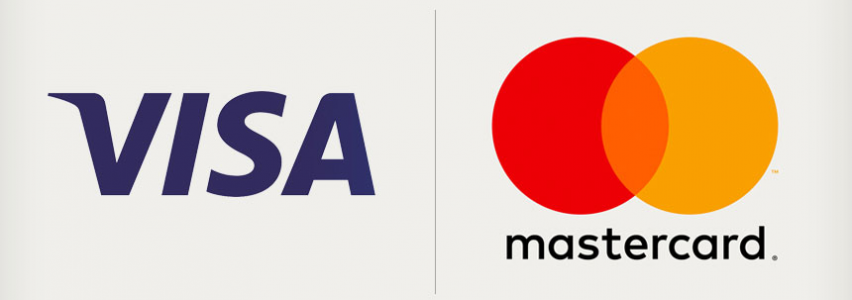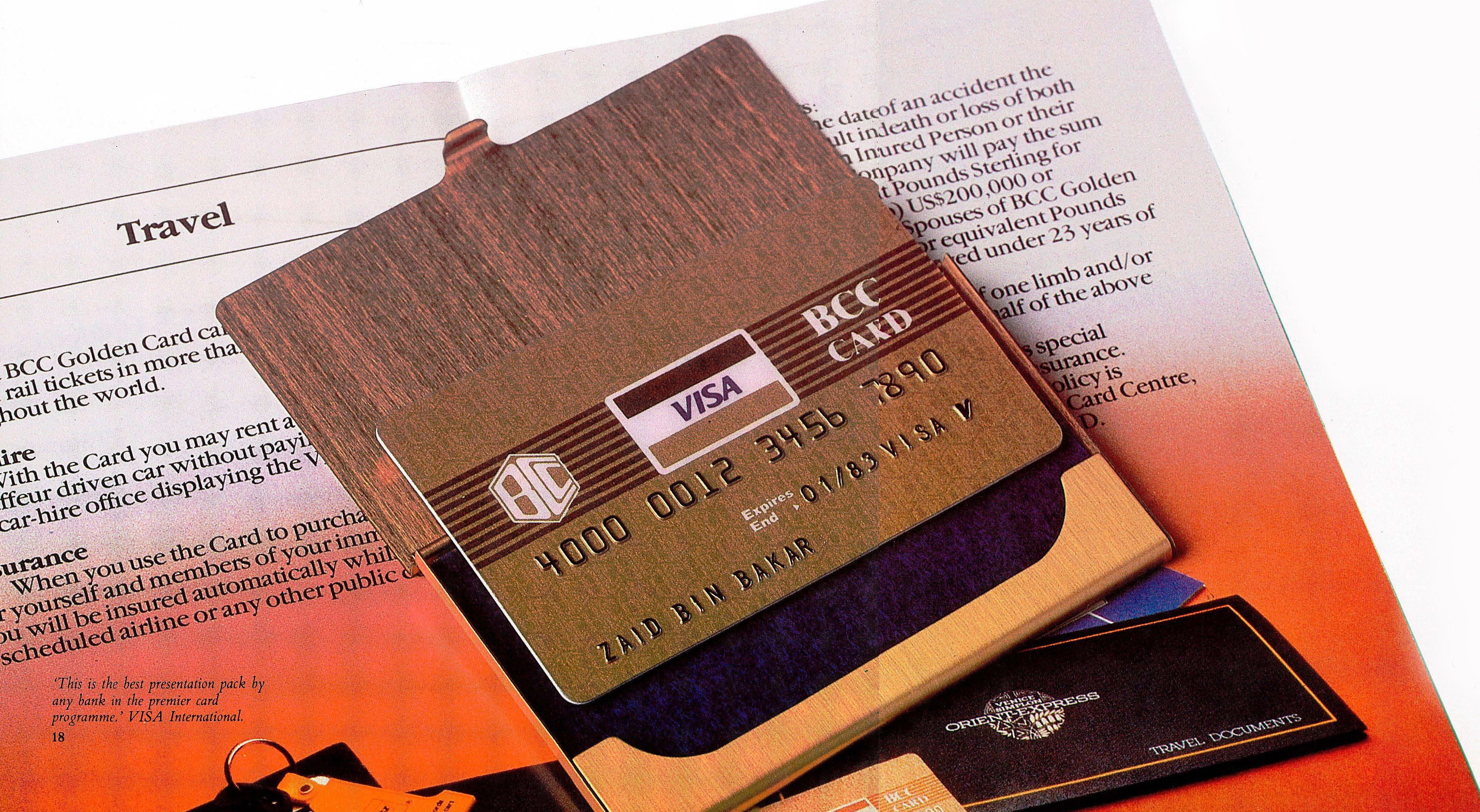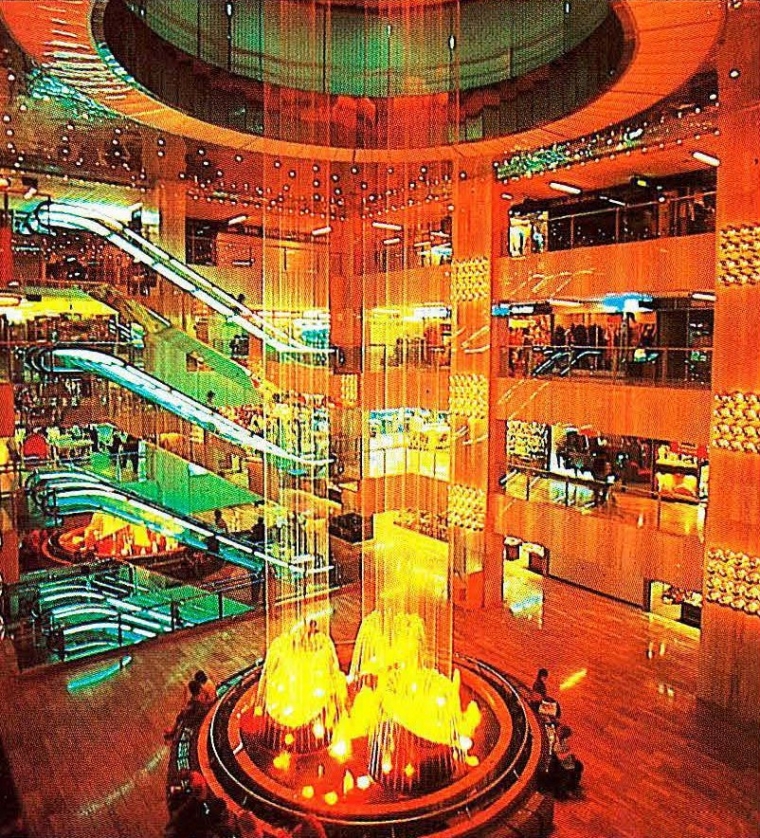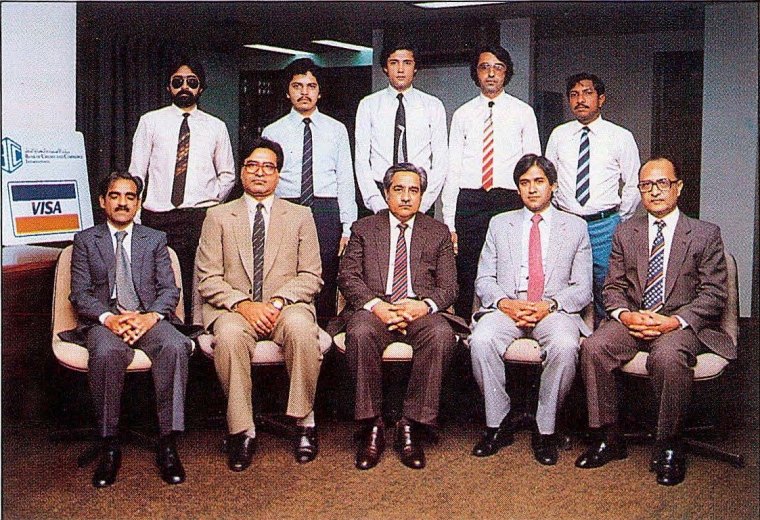
Bank of Credit and Commerce International issued BCC Cards in association with both VISA and MasterCard, the two major players dominating the global payments processing market. While credit cards were another service offered by banks, they were also a source of significant income.
Credit cards offer a flexible way of making cashless payments to purchase goods and services around the world from sellers (known as credit card merchants) that accept card payments in place of cash or cheque.
An important reason why credit cards became very popular as a mode of payment, compared to say travellers cheques is that credit cards gave the users the option to make payment in full or spread payment with interest.
The card size makes it more convenient to carry around than cash and travellers cheques.
Credit cards is very popular mode of payment for most types of goods and services. With a single card the holder can use it multiple times.
Profit for card issuers
Credit card issuers such as banks make most of their income from interest, in addition to fees charged to cardholders, and transaction fees paid by businesses that accept credit cards.
Interest income is earned when credit card users do not repay the total balance in full owed to the card issuers and pay interest on the outstanding balance from month to month.
Users avoid paying interest by repaying the total balance in full.
VISA Credit Cards
VISA and MasterCard are the world’s two largest payment card network processors and backers of credit cards that are issued through members financial institutions who issue credit (and debit) cards directly. Neither company are involved with extending credit or issuing cards.
VISA is a membership organisation wholly owned by its members, to whom it provides services at cost.
Each of the member banks is free to market its VISA programme as it thinks best, making their own decisions on pricing, merchant discounts and charges to card holders.

BCC CARD and VISA
As a member of VISA International, BCC took the decision in early 1980 to issue a first traditional credit card with VISA and using VISA’s systems to authorise transactions anywhere where the VISA sign was displayed, and for processing transactions.
.jpg)
.jpg)
In 1980 there were currently 86 million Visa cardholders worldwide, generating a total billing of US$38 billion.
BCC's association with VISA proved valuable and VISA BCC Cards had immediate worldwide acceptance. The familiar blue, white and gold of the traditional VISA card was easily recognised and accepted by millions of merchants in the majority countries, and eventually worldwide.
With BCC’s branches and affiliates in parts of the world where there were few other banks at the time, VISA and was able to extend this network even further.
BCC VISA Card was issued in four stages starting from September 1980. Firstly, to senior staff members. Secondly, to such customers to whom BCC had arranged issue of cards of other issuers in the past. Thirdly, to highly valued clients and, finally, to selected credit-worthy customers.
Apart from the pre-arranged spending limits on BCC Cards, the holders were able to obtain the equivalent of up to US$250 in cash from any ATMs in Visa's international network.
BCC Golden Card
In early August 1983, Mr Agha Hasan Abedi, BCC President, was presented with the first BCC Golden Card with the logo of VISA. The new Golden card extended the range of services available through the traditional BCC card.
The VISA Golden card was recognised by the golden or gold colour of the card.
The need for the Golden Card grew out of the success of the original BCC card which was launched three years earlier in 1980.
BCC's clients were using the traditional card as a premier card, and their average spending was considerably higher than that of holders of premier cards of other banks.
It took BCC about a year to plan the launch of the Golden Card. The software programs for the card centre had to be carefully designed. The higher authorisation levels for credit card merchants, the cash advance facilities and all the other benefits of the Golden Card had to be fitted into a system that was already in operation for the traditional BCC Card.
The new BCC Golden Card had a range of services designed to meet more fully the needs of BCC’s clients. These included:
- Higher spending limits.
- Free and automatic travel insurance on scheduled airlines and other forms of public transport for card holders and their immediate family, when the travel was paid for with the card. This insurance was worth as much as $400,000.
- Special high cash advance facilities in any BCC branch worldwide.
- Cash withdrawal facilities of up to $500 a day in other VISA banks.
- Personal cheques guaranteed up to prearranged limits.
- Emergency help of up to $5,000 in case a card was lost or stolen.
- Guaranteed room reservations and express check-out services at selected hotels.
- Facilities for car hire, theatre bookings and telephone bookings.
- Automatic settlement of accounts.
The BCC Golden Card benefits offered clear advantages over its rivals and BCC's managers found the new card a useful addition to the BCC portfolio of products and services, but it also proved to be a very effective as a marketing aid in attracting new clients and increasing business.

An introductory booklet was sent with the application form to important and high-net-worth clients of BCC inviting them to become Golden Card holders. The presentation packs for the Golden Card were designed in a thoughtful and imaginative manner.
The approach adopted by BCC gave managers and the marketing teams the opportunity to renew and extend personal contacts with clients.
Design of the new BCC Classic and Golden cards
The new cards, both Classic and Golden with their stylish designs, were introduced on a worldwide basis in early 1985.
The design incorporated, in hologram form, the symbol of a dove and was composed of fine reflective lines which give it a 3D appearance. As the card was turned in the hand, the bird appeared to fly. Highly sophisticated and expensive laser printing technology was required to produce this effect, so a criminal would find it difficult to alter a card.
.jpg)
Benefits for BCC Card Holders
BCC needed to continually review the benefits of BCC VISA to compete with benefits offered with credits cards from other issuers.
The old standard card was renamed the Classic card and, to help reposition it in the market, new designs were introduced for both the Classic card and the Golden card. The distinctive designs clearly differentiated BCC's products from all other cards since BCC had a higher cardholder profile than any other card.
A BCC Classic cardholder was spending four times more each year than the holder of an ordinary American Express green card, while a BCC Golden cardholder was spending approximately five times more each year than an American Express counterpart.
On 1 August 1987, BCC’s Classic and Golden Cardholders were able to obtain much higher cash amounts on the cards in BCC branches than other types of cardholders in other outlets.
In addition, there were unique and comprehensive range of travel-related benefits available to BCC cardholders made the BCC card one of the best of its kind in the world.
Clients who used their BCC Cards to purchase air, sea or rail tickets benefited from BCC's Automatic Travel Insurance for themselves and their immediate family while travelling on a scheduled airline or any other public conveyance.
- Accident cover up to the equivalent of US$150,000 applied to the Gold Card holder, (US$100,000 in the case of the Classic Card holder) plus accompanying spouse and unmarried children aged 23 or under in full time education. Children under 16 were covered to a maximum of US$3,500 in accordance with legal limits.
- Loss of luggage, flight delays and flight cancellations.
In association with International SOS Assistance, BCC provided BCC card holders and their immediate families with access to emergency medical and personal assistance while travelling outside their country of residence. Medical, hospital, evacuation and repatriation fees were covered to a maximum of US$15,000 per trip.
BCC cardholders travelling abroad who found themselves in need of emergency legal assistance benefited from the referral service of International SOS, which included a contribution of up to US$1,000 towards fees incurred.
BCC Gold Card holders were automatically enrolled as members of the Frequent Business Travellers Club and are exempt from the club's usual enrolment fee of US$70 and annual membership fee of US$80. Classic Card holders would pay a special BCC price of $25. The FBTC is a prestigious travel club, offering members worldwide hotel and car rental discount facilities, guest privileges at exclusive clubs and access to various travel award schemes run by the major airlines.
BCC and MasterCard
One of the most important developments in BCC’s credit card programme was an exclusive agreement in 1985 with MasterCard in English-speaking Africa. The affiliation with MasterCard was expanded with non-exclusive, in other countries like Pakistan, the Maldives, Sri Lanka, Barbados, Jamaica, the Bahamas and Bermuda.

The link up with MasterCard was not insignificant; in the credit card league, MasterCard and Visa are by far the two largest organisations in terms of card issuance, number of accepting merchants and billing volumes.
The MasterCard organisation includes the Access and Eurocard groups.
The affiliation with MasterCard in the African countries placed BCC in a very strong position. There was then no competition from any other bank to sign up merchants for MasterCard.
BCC acted as paying agents for MasterCard purchases in leading hotels, restaurants, tourist shops, travel agencies, car rental firms and airlines. These merchants signed agreements with BCC for MasterCard acceptance.
BCC GreenCard
In October 1985 BCC launched the BCC GreenCard in association with MasterCard. It had the aim of raising a substantial cash sum for environmental projects.
.jpg)
Enrolling credit card merchants
The increasing use of credit cards in association with VISA and MasterCard provided an opportunity in countries where BCC had a strong local presence, for BCC to introduce leading credit card merchants to the full range of the BCC group’s services. They include shops, departmental stores, online shopping sites, hotel (for reservations and settlement of bills), restaurants, holidays and travel companies.

BCC commenced enrolling merchants where BCC had the VISA charter jurisdiction, and where BCC also had MasterCard jurisdiction. BCC also acted as paying agents for these agents.
BCC officers at these centres marketed Visa and/or Mastercard services to a selection of suitable merchants and other retail outlets.
.jpg)
Each outlet had a limit on the amount of money it could accept on the BCC cards, called a flow limit, above which an authorisation was needed from the local VISA centre. The international travel firms, the large hotels and the prestigious shops in the VISA and MasterCard networks needed a fast authorisation service in order to respond to their clients' needs.
.jpg)
BCC Card Centres
BCC Card Centres were set up at various BCC locations around the world.
As well as looking after the applications for new cards, the centres dealt with the retail outlets where BCC cards were used.
The Card Centres were linked to a division at CSO, BCC’s administration headquarters in London, United Kingdom, known as International Payment Systems, which was responsible for all travel-related products including travellers cheques and home remittance money orders.
The Centres had their own computers on which local transactions are recorded and processed in London. BCC's London Card Centre was online to Mastercard in St Louis and to Visa in London, permitting both speedy authorisation for BCC card holders and speedy settlement for BCC’s merchant paying agent centres around the world.

Acknowledgement:
In-house Magazines